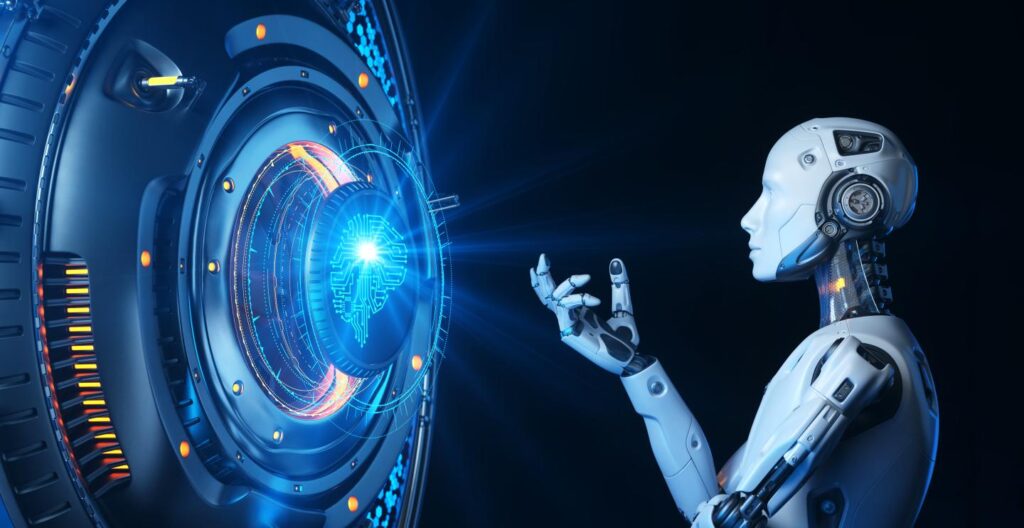Artificial intelligence (AI) refers to the simulation of human intelligence in machines that are programmed to think like humans and mimic their actions. The term may also be applied to any machine that exhibits traits associated with a human mind such as learning and problem-solving.
The ideal characteristic of artificial intelligence is its ability to rationalize and take actions that have the best chance of achieving a specific goal. A subset of artificial intelligence is machine learning (ML), which refers to the concept that computer programs can automatically learn from and adapt to new data without being assisted by humans. Deep learning techniques enable this automatic learning through the absorption of huge amounts of unstructured data such as text, images, or video.

What Are the 4 Types of AI?
Artificial intelligence can be categorized into one of four types.
- Reactive AI uses algorithms to optimize outputs based on a set of inputs. Chess-playing AIs, for example, are reactive systems that optimize the best strategy to win the game. Reactive AI tends to be fairly static, unable to learn or adapt to novel situations. Thus, it will produce the same output given identical inputs.
- Limited memory AI can adapt to past experience or update itself based on new observations or data. Often, the amount of updating is limited (hence the name), and the length of memory is relatively short. Autonomous vehicles, for example, can “read the road” and adapt to novel situations, even “learning” from past experience.
- Theory-of-mind AI are fully-adaptive and have an extensive ability to learn and retain past experiences. These types of AI include advanced chat-bots that could pass the Turing Test, fooling a person into believing the AI was a human being. While advanced and impressive, these AI are not self-aware.
- Self-aware AI, as the name suggests, become sentient and aware of their own existence. Still in the realm of science fiction, some experts believe that an AI will never become conscious or “alive”.
How Is AI Used Today?
AI is used extensively across a range of applications today, with varying levels of sophistication. Recommendation algorithms that suggest what you might like next are popular AI implementations, as are chatbots that appear on websites or in the form of smart speakers (e.g., Alexa or Siri). AI is used to make predictions in terms of weather and financial forecasting, to streamline production processes, and to cut down on various forms of redundant cognitive labor (e.g., tax accounting or editing). AI is also used to play games, operate autonomous vehicles, process language, and much, much, more.
How Is AI Used in Healthcare?
In healthcare settings, AI is used to assist in diagnostics. AI is very good at identifying small anomalies in scans and can better triangulate diagnoses from a patient’s symptoms and vitals. AI is also used to classify patients, maintain and track medical records, and deal with health insurance claims. Future innovations are thought to include AI-assisted robotic surgery, virtual nurses or doctors, and collaborative clinical judgment.

In recent times, silicone sex dolls have witnessed a surge人形エロ in popularity within the realm of adult intimacy products.
Your comment is awaiting moderation.